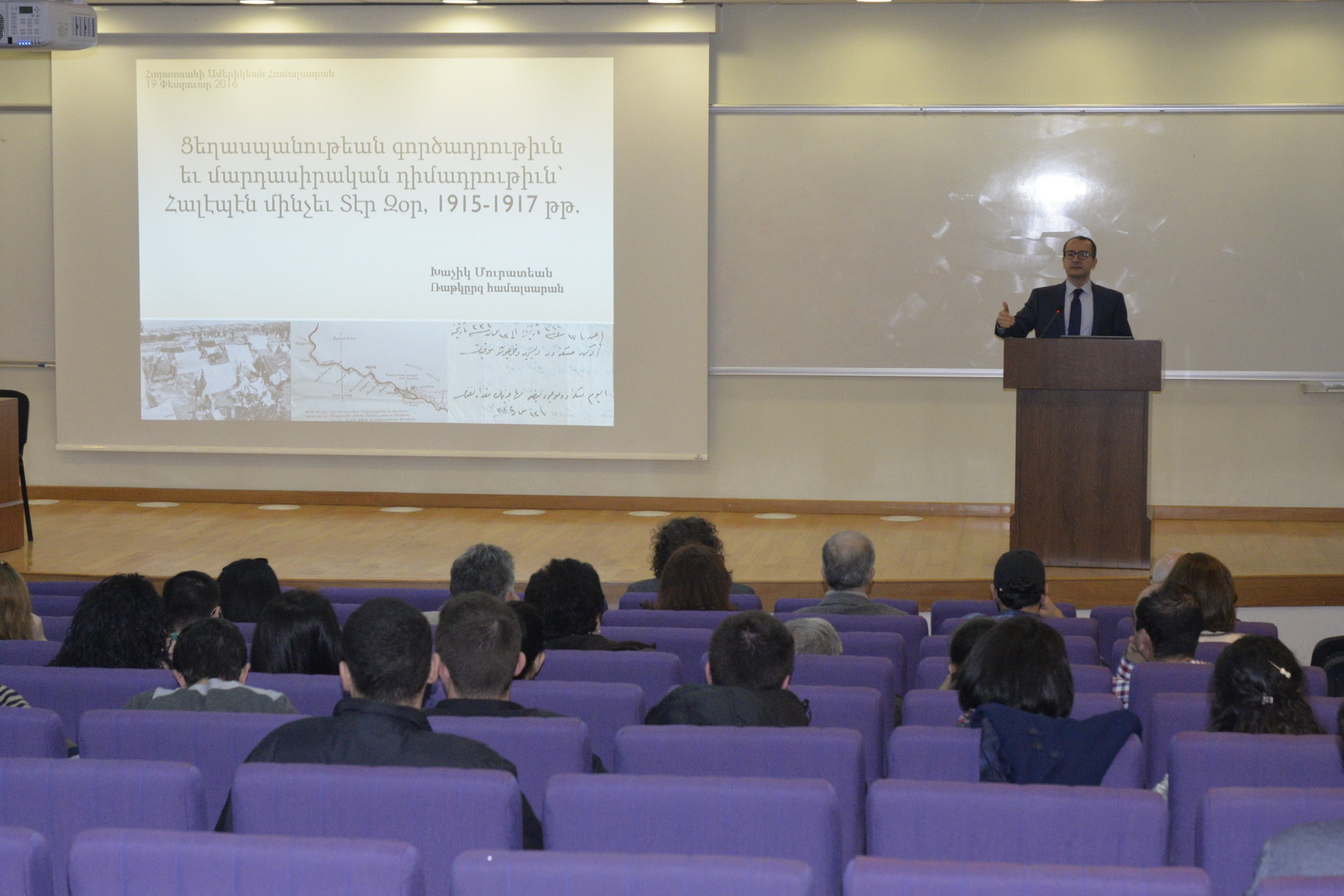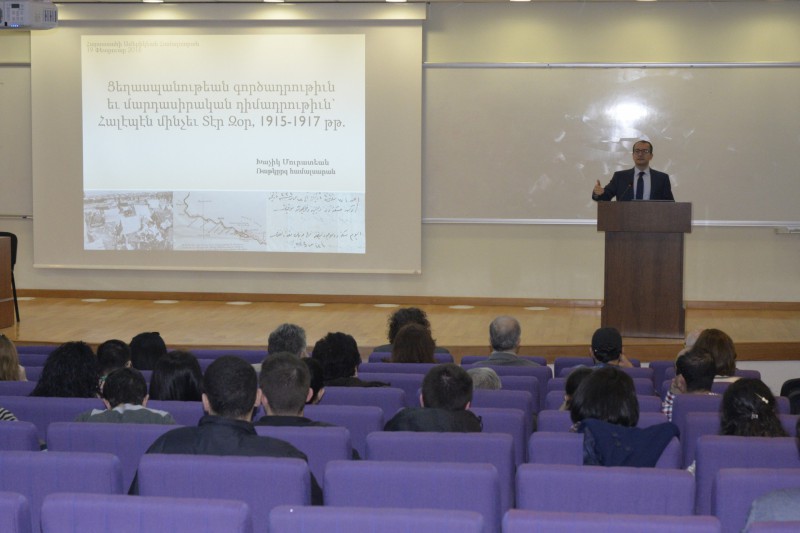
Public Lecture: Genocide and Humanitarian Resistance in Ottoman Syria, 1915-1917
2 min readYEREVAN, Armenia – On February 29th, the College of Humanities and Social Sciences hosted a public lecture about an extremely rare look at the Genocide of the Armenians, concerning the resistance in Ottoman Syria from 1915-1917. The lecture filled up Alex and Marie Manoogian Hall, and was all in Armenian.
The lecture was led by Khatchig Mouradian, who is a visiting assistant professor at the Division of Global Affairs at Rutgers University and the coordinator the Armenian Genocide Program at the university’s Center for the Study of Genocide and Human Rights (CGHR). He teaches courses on imperialism, mass violence, and concentration camps in the History and Sociology departments at Rutgers. Mouradian is also adjunct professor at the Philosophy and Urban Studies departments at Worcester State University, where he teaches courses on urban space and conflict in the Middle East, genocide, collective memory, and human rights. Mouradian holds a PhD in history from the Strassler Center for Holocaust and Genocide Studies at Clark University.
During the lecture, Mouradian highlighted the assault on, and the humanitarian resistance waged by Armenian deportees in Ottoman Syria during World War I, and provided insight into key aspects of the Armenian Genocide. Khatchig Mouradian presented a multifaceted account of developments in Aleppo and across the network of concentration camps in Ras ul-Ain and along the banks of the Euphrates river from Meskeneh to Der Zor during the war. Drawing upon previously untapped primary sources as well as fresh insights from others, Mouradian mined the interactions between the local, regional, and central authorities on the one hand, and the humanitarian resistance waged by a network of Armenians aided by locals and western missionaries on the other. Positioning the war effort at the core of Ottoman policies towards deportees in Ottoman Syria, Mouradian examined how, and why, a series of fateful decisions affecting hundreds of thousands of Armenian deportees, rolled out beginning in fall 1915, culminating in a second wave of massacres in the Syrian desert in summer 1916, and how thousands of Armenians survived the carnage through the efforts of the humanitarian resistance network.
Founded in 1991, the American University of Armenia (AUA) is a private, independent university located in Yerevan, Armenia and affiliated with the University of California. AUA provides US-style education in Armenia and the region, offering high-quality, graduate and undergraduate studies, encouraging civic engagement, and promoting public service and democratic values.

